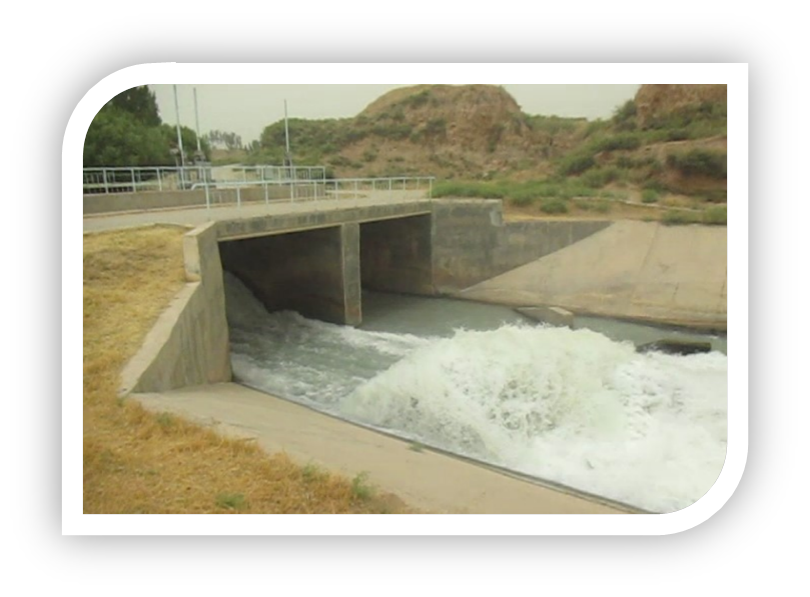AUTHOR: AYDIN GÜNLER
TUTOR: Eng. GIOVANNI FRANCHI
INTERNSHIP: N/A
MASTER: Master in “Project and Contract Management in Construction Works” a.a 2022/2023
An infrastructure project implemented in Central Asia namely in Republic of Uzbekistan which is funded by one of international finance corporations (IFC) is analysed as a case study considering the problems encountered during the project execution.
The Republic of Uzbekistan is especially vulnerable to the effects of climate change because it is already arid and primarily composed of vast desert plains. Climate change-induced temperature increases, more frequent and severe droughts, less rainfall, and changes in weather patterns that modify the growing season pose substantial dangers to the country’s agriculture and economy.
Therefore, Uzbekistan has started to modernize its irrigation infrastructure to climate resilient irrigation systems to improve water supply to the agricultural sector.
In this thesis, a brief explanation of the project is given in Chapter Two. In Chapter Three, the key issues occurred during the project are explained. Contractors’ claims due to key issues are presented in Chapter Four. In Chapter Five, entitlement of the Contractor’s for additional time and costs and the Engineer’s determinations on these claims are reviewed based on the contract conditions. In Chapter Six and Chapter Seven, disputes and other issues affecting the contract implementation are discussed.
In the project, the main bottleneck which is not solved during project implementation is opening and closure of water into the existing irrigation canals during vegetation periods while it is the main livelihood of the residents, and the project area is at paramount importance for the country to guarantee food security. There was no other option during the project implementation since the existing irrigation canals are rehabilitated and reconstructed. Contractors notwithstanding contract provisions, claimed either costs of idle time or downtime and time extensions for these interruptions without any contractual basis although it is explicitly written in the contracts that these prices are included in the contract price.
Time is a vital issue in the engineering and construction industries, and delays can have a considerable impact on project schedules and costs. Time bar clauses are contractual restrictions that must be followed when dealing with delay claims. They require a party to submit a notice, make a claim, or take other action within a specified time. If the party fails to comply with the time bar clause, they may lose their right to make a claim that would otherwise be legally recognizable. Time bar clauses typically include specific notice requirements, mandating that parties notify each other promptly when delays occur. This ensures that all parties are informed and can take necessary actions to address the delay.
It has been observed that international contractors which are awarded tenders within the project were aware of their contractual rights and they observed contract time bar provisions. Unfortunately, this is not the case for local contractors.
In the same project, it is also observed that with proper planning an organized international contractor can do more work with less manpower when compared with the local contractors. In the organization of international contractor, the construction team was supervised by skilled manpower who were aware of their duties and responsibilities. On the contrary, the local contractors were far away from proper order, and they were working with very low productivity.
On the other hand, although more than 30 years have passed, the effects of the collapse of the Soviet Union are still felt in the country/region. It is hard to find skilled and trained labour force in the country. After fall of Soviet Union, most of of the qualified and experienced experts immigrated to Russian Federation without conveying their experience and knowledge to the new generations in these Central Asian Republics. Therefore, there is a big gap (circa 20 years) between the experts who stayed in these Central Asian Republics and new generation who has started to deal with construction industry. Based on the authors observations, the skilled and qualified experts and workers continue to migrate Russian Federation in search of a better income and living conditions.
Apart from above, it should be also noted that adequate and more real durations should be allocated for detailed design studies. Unfortunately, IFCs intend to keep the construction periods as much as long and design period short which results in poor design, time, and cost overruns. Therefore, design and tender durations should be increased in the projects which are funded by International Finance Corporation (IFCs).
It should be highlighted that the success of a project is not just dependent on the contractors’ ability to complete the works which are undertaken. It is also linked with proper work of all project stakeholders including the residents who are living in the project site and all these partners should work in collaboration and harmony to reach the project goals.
Photos:




